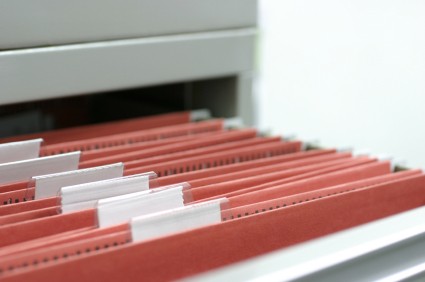7 Smart Ways to Store Important Paperwork Safely

In today's digital age, where cloud storage and digital documents dominate, the importance of managing physical paperwork can sometimes be overlooked. However, there are still numerous documents that require physical storage due to legal, security, or preservation needs. From birth certificates and tax returns to legal contracts and medical records, knowing how to store important paperwork safely is not just about organization; it's about ensuring these critical documents remain intact, accessible, and confidential. Here are seven smart strategies for safeguarding your vital paperwork.
1. Choose the Right Location

Selecting an optimal storage location is your first step in paper document preservation:
- Safe from Environmental Damage: Avoid basements or attics where humidity or temperature fluctuations can occur.
- Away from Sunlight: Direct sunlight can fade ink or cause paper to yellow.
- Low Traffic: Less foot traffic means less chance of accidental damage.
Consider a cool, dry, dark space, possibly a home office or a dedicated cabinet.
2. Use Quality Storage Materials

Invest in the right storage materials to prevent degradation:
- Acid-Free Boxes: These prevent paper from becoming brittle.
- Archival Quality Folders: Look for those labeled as safe for long-term document storage.
- Fireproof/Waterproof Safe: Ideal for highly sensitive documents.
🧩 Note: Ensure any material chosen is made without harmful chemicals that could deteriorate paper over time.
3. Organize with a System

An organized system not only helps in quick retrieval but also in preservation:
- Categorization: Group documents by category (financial, legal, medical, etc.)
- Chronological Order: Within each category, arrange documents by date.
- Labeling: Clearly label each file for easy identification.
Consider using color-coded tabs or a digital inventory for enhanced organization.
4. Regular Maintenance and Review

Periodically review your documents:
- Shred Unnecessary: Dispose of outdated documents securely by shredding.
- Update and Archive: Update records and move old documents to long-term storage.
- Check for Damage: Look for signs of wear, mold, or insect damage.
5. Implement Security Measures

Keeping your documents safe from prying eyes is crucial:
- Locked Storage: Use a lockable filing cabinet or safe.
- Privacy Measures: Consider using a PO Box for sensitive mail.
- Home Security: Ensure your home is secured with good locks and perhaps a security system.
6. Consider Digital Backups

While not a replacement for physical documents, digital backups can:
- Provide quick access and ease of sharing.
- Serve as a backup in case of physical damage or loss.
- Protect against data corruption or erasure.
💾 Note: Use encrypted storage solutions to secure your digital backups.
7. Professional Document Storage Services

For those with numerous or highly confidential documents:
- Climate-Controlled Storage: Professional services provide conditions optimal for document preservation.
- Enhanced Security: These services often come with high-level security measures.
- Inventory Management: Many services offer cataloging and indexing.
In summary, preserving and organizing your important paperwork requires thoughtful planning and the right approach. By selecting secure locations, using appropriate storage materials, maintaining organization, ensuring security, reviewing periodically, making digital backups, and considering professional services when necessary, you can keep your documents safe, secure, and in pristine condition. This proactive management not only ensures your paperwork remains usable for future reference but also provides peace of mind regarding your legal, financial, and personal records.
What’s the best way to store medical records?

+
Medical records should be stored in a cool, dry place. Using acid-free, archival-quality folders within a fireproof safe or locked cabinet helps keep them secure and well-preserved.
Can digital backups completely replace physical documents?

+
No, for certain legal or official purposes, original physical documents are required. However, digital backups provide a secure, easily accessible secondary storage option.
What should I do with expired documents?

+
Expired documents should be securely shredded to protect against identity theft, unless they are needed for record-keeping, in which case, archive them.